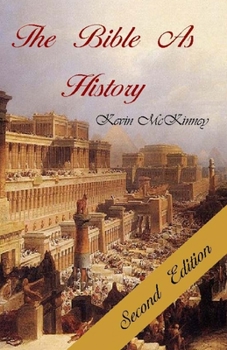The Bible As History
Did the Bible writers get it right? Can we trust the historical aspects of the Bible? What can science, archaeology and history tell us about the historical aspects of the Bible? If the writers got the historical details correct, does it make it easier to believe the divine aspects recorded in the Bible? Examine the evidence for yourself. The spread of Christianity is not easily explained or understood and confounds critics and believers alike. While this new faith was widely spread by word of mouth, the primary tool for the new religion was the Bible. Even now, nearly 2,000 years later the Bible continues to influence lives all over the world. How can this ancient document continue to have such a profound influence on the world? How has it survived the changing times and the feeble whims of mankind? While the world has changed so dramatically, the Bible remains the same. The Bible has withstood centuries of attack from critics and non-believers, but it still stands intact. The Bible has its roots in both theology and history. Some believe the Bible is at its basest form a book of history. "The Religion of the Bible is broadly speaking, a historically based religion; the primary arena of the Bible is history; the divine manifestation is set essentially in history." The Bible is indeed a historically accurate document which can be trusted in all the elements it records regarding history, and therefore should be considered trustworthy and accurate in other areas as well. Can and should the Bible be taken seriously as an historical document? What does science, archaeology and ancient writings have to say on the subject? All of this and more is covered in 'The Bible As History'.
Format:Paperback
Language:English
ISBN:1490507418
ISBN13:9781490507415
Release Date:June 2013
Publisher:Createspace Independent Publishing Platform
Length:378 Pages
Weight:0.96 lbs.
Dimensions:0.8" x 5.5" x 8.5"
Customer Reviews
0 rating





